detail profile yves robert
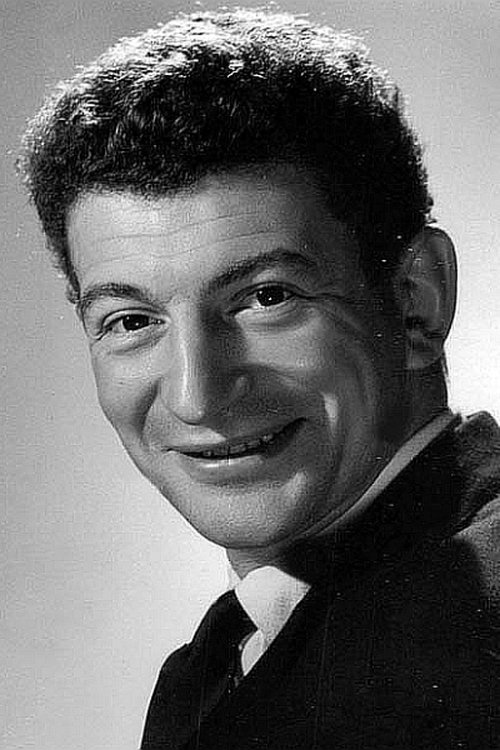
Riwayat Hidup
Yves Robert (19 June 1920 – 10 May 2002) was a French actor, screenwriter, director, and producer.
Robert was born in Saumur, Maine-et-Loire, France.
In his teens, he went to Paris to pursue a career in acting, starting with unpaid parts on stage in the city's various theatre workshops.
From ages 12–20 he set type as a typographer, then studied mime in his early 20s.
In 1948 he made his motion picture debut with one of the secondary roles in the film, Les Dieux du dimanche.
Within a few years, Robert was writing scripts, directing, and producing.
Yves Robert's directorial efforts included several successful comedies for which he had written the screenplay.
His 1962 film, La Guerre des boutons won France's Prix Jean Vigo.
His 1972 film Le grand blond avec une chaussure noire won the Silver Bear at the 23rd Berlin International Film Festival in 1973.
In 1976, Un éléphant ça trompe énormément, starring his wife, earned him international acclaim.
Robert's 1973 devastating comedy Salut l'artiste is considered by many performers to be the ultimate film about the humiliations of the actor's life.
In 1977, he directed another comedy, Nous irons tous au paradis, which was nominated for a César Award for Best Film.
In 1990, Robert directed two dramatic films, My Mother's Castle (Le château de ma mère) and My Father's Glory (La Gloire de mon Père).
Based on autobiographical novels by Marcel Pagnol, they were jointly voted "Best Film" at the 1991 Seattle International Film Festival, and received rave reviews.
Over his career, he directed more than twenty feature-length motion pictures, wrote an equal number of scripts, and acted in more than seventy-five films.
Although his last major role was perhaps in 1980, A Bad Son by Claude Sautet, as the working-class father of a drug-dealer, he continued acting past 1997.
Robert played opposite Danièle Delorme in the 1951 play Colombe (Dove) by Jean Anouilh.
They married in 1956, and jointly formed the film production company La Guéville in 1961.
La Guéville also released several films by Monty Python and Terry Gilliam, which was very influential into establishing the comedy troupe to French audiences.
He died in Paris on 10 May 2002 from a cerebral hemorrhage.
He was buried in Montparnasse Cemetery with the epitaph "A man of joy .
.
.
", where visitors leave buttons of many colors.
[citation needed]He was survived by Danièle and two children, Anne and Jean-Denis Robert, by first wife, actress Rosy Varte.
That month's Cannes Film Festival paid homage to his contribution to French film.
Source: Article "Yves Robert" from Wikipedia in English, licensed under CC-BY-SA 3.
0.
Info Pribadi
Peran Yang Di Mainkan Yves Robert
 This documentary follows various migratory bird...
This documentary follows various migratory bird...Winged Migration 2001
This documentary follows various migratory bird species on their long journeys from their summer homes to the equator and back, covering thousands of miles and navigating by the stars. These arduous treks are crucial for survival, seeking hospitable climates and food sources. Birds face numerous challenges, including crossing oceans and evading predators, illness, and injury. Although migrations are undertaken as a community, birds disperse into family units once they reach their destinations, and every continent is affected by these migrations, hosting migratory bird species at least part of the year.
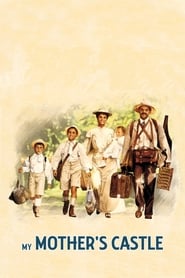 To his chagrin young Marcel Pagnol...
To his chagrin young Marcel Pagnol...My Mother's Castle 1990
To his chagrin, young Marcel Pagnol and his family move back to their home in Marseilles, France, far from their pastoral holiday cottage in the hills. Determined, Marcel makes the long voyage back to the cottage on foot and lands himself in trouble. One day Marcel's father discovers a shortcut to the cottage, but it requires trespassing. Despite their trepidations, Marcel and his family begin using the secret trail to reach their cottage.
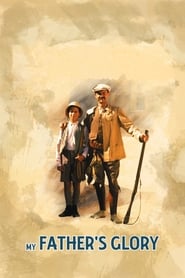 Raised by his science teacher father...
Raised by his science teacher father...My Father's Glory 1990
Raised by his science teacher father, Joseph Pagnol, and seamstress mother Augustine, young Marcel grows up during the turn of the century in awe of his rationalist dad. When the family takes a summer vacation in the countryside, Marcel becomes friends with Lili, who teaches him about rural life.
 When a happily married family man...
When a happily married family man...The Woman in Red 1984
When a happily married family man, who would never consider an affair, meets a beautiful woman in red, he is totally infatuated and desperate to make her acquaintance. However, as he tries out various schemes to sneak out to meet her, he realizes that adultery is not quite as easy as it looks.
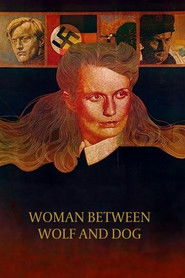 Lieve is a Belgian woman who...
Lieve is a Belgian woman who...Woman Between Wolf and Dog 1979
Lieve is a Belgian woman who marries just as World War II is beginning. When the Germans invade, her husband goes off to fight them, but he swiftly returns home after the invasion succeeds. Later, he decides that the Germans are on the right side of things, and goes off to fight for them on the Eastern Front. Soon afterward, a resistance fighter is stranded on her doorway, and she hides him. The two of them fall in love, and the conflicts and joys of this relationship cause Lieve continued grief well after the end of the war.
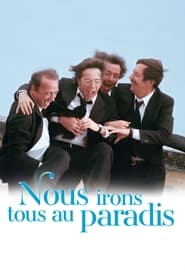 Having fortuitously discovered a photograph in...
Having fortuitously discovered a photograph in...We Will All Meet in Paradise 1977
Having fortuitously discovered a photograph in which Marthe embraces someone unknown, Étienne Dorsay becomes jealous and imagines various stratagems to identify the lover. In the meantime, he and his friends acquire a weekend house for a very low price.
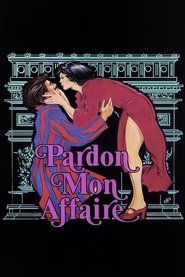 On an otherwise normal day tienne...
On an otherwise normal day tienne...Pardon Mon Affaire 1976
On an otherwise normal day, Étienne, a happily married man and a good father, sees something that stops him dead in his tracks: a gorgeous woman in a billowing red dress. Long after she has left his vision, her memory continues to haunt his mind. He falls instantly in love with her and tries everything to get to know her better. Helping Étienne snare his elusive lady in red are his three bumbling buddies, which all have secret affairs and/or cheat on their wives.
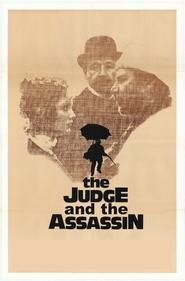 France 1893 Joseph Bouvier attempts to shoot...
France 1893 Joseph Bouvier attempts to shoot...The Judge and the Assassin 1976
France, 1893. Joseph Bouvier attempts to shoot his love who refused to marry him and to commit suicide. Upon release from the filthy asylum where he was placed, with bullets still remaining in his head, he wanders the country roads and rapes and murders many teenagers over years. The judge Rousseau captures him, but to serve his ambition seeks to avoid that Bouvier is simply declared insane.
 With little captain Cambrai raising serious...
With little captain Cambrai raising serious...The Return of the Tall Blond Man with One Black Shoe 1974
With "little captain" Cambrai raising serious doubts about the reality of the so-called "super spy," Colonel Toulouse kidnaps Christine and forces Francois to play again the character of "The Tall Blond Man with One Black Shoe" in some fake adventures. All this to stop the investigation into the death of Colonel Milan.
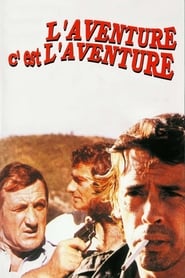 When they realize the times are...
When they realize the times are...Money Money Money 1972
When they realize the times are changing, five crooks decide to switch from bank robberies to personality abductions.
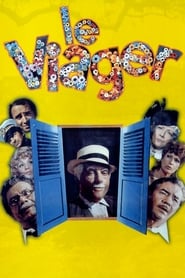 In 1930 Louis Martinet a peaceful sexagenarian...
In 1930 Louis Martinet a peaceful sexagenarian...The Annuity 1972
In 1930, Louis Martinet, a peaceful sexagenarian, no longer has a long life to live according to the words of his doctor, Leon Galipeau, who sees to take advantage of the very interesting situation of the "future deceased". This one indeed has a small house in Saint-Tropez. Galipeau sniffs the windfall. Following his advice, Martinet agrees to give it in life to the brother of the doctor, Emile, and then rushes back to a health of iron. Worse, he even survives the war. Galipeau, exhausted, decide to use the great means to get rid of the importunce who persists in thwarting their project ...
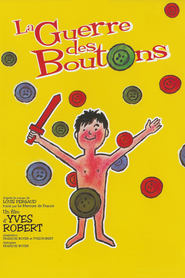 For generations two rival French villages...
For generations two rival French villages...War of the Buttons 1962
For generations, two rival French villages, Longueverne and Velrans, have been at war. But this is no ordinary conflict, for the on-going hostilities are between two armies of young schoolboys. When he is beaten by his father for having lost his buttons, the leader of the Longueverne army, Lebrac, has an idea which will give his side the advantage: next time, he and his brave soldiers will go in battle without their clothes...
 Agns Varda eloquently captures Paris in...
Agns Varda eloquently captures Paris in...Cléo from 5 to 7 1962
Agnès Varda eloquently captures Paris in the sixties with this real-time portrait of a singer set adrift in the city as she awaits test results of a biopsy. A chronicle of the minutes of one woman’s life, Cléo from 5 to 7 is a spirited mix of vivid vérité and melodrama, featuring a score by Michel Legrand and cameos by Jean-Luc Godard and Anna Karina.
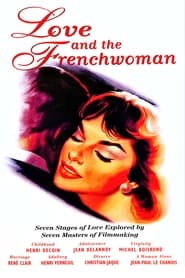 The seven stages in the life...
The seven stages in the life...Love and the Frenchwoman 1960
The seven stages in the life of the modern Frenchwomen are disclosed by seven directors in a witty way: 1 - Childhood, 2 - Adolescence, 3 - Virginity, 4 - Marriage, 5 - Adultery, 6 - Divorce, 7 - The Single Woman.
 A man is mistaken as a...
A man is mistaken as a...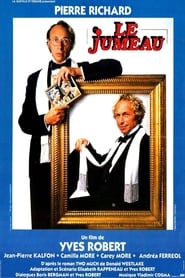 Matthias Duval is in love but...
Matthias Duval is in love but...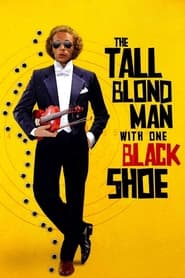 A hapless orchestra player becomes an...
A hapless orchestra player becomes an... Alexandre a young and honest farmer...
Alexandre a young and honest farmer... In a small French village everything...
In a small French village everything...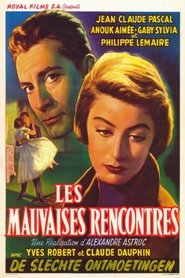 Catherine Racan a young journalist who...
Catherine Racan a young journalist who...